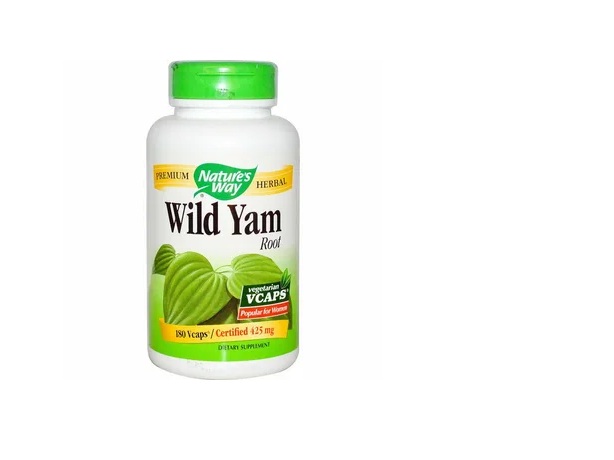Wild yam (Dioscorea villosa) is a species of yam native to North America, where it has been used for centuries by indigenous cultures for its medicinal properties. While wild yam is commonly known as a source of diosgenin, a compound used in the synthesis of steroid hormones, it also contains other bioactive compounds that contribute to its health benefits. Wild yam supplements have gained popularity for their potential to support hormonal balance, alleviate menopausal symptoms, and promote overall well-being. In this comprehensive guide, we’ll delve into the benefits of wild yam supplements, their uses, dosage recommendations, potential side effects, and interactions.
Understanding Wild Yam
Wild yam is a twining vine with heart-shaped leaves and small, greenish-white flowers. It produces tuberous roots that are rich in starch and various phytochemicals, including diosgenin, dioscin, and saponins. While wild yam has a long history of traditional use as a food source and medicinal herb, it is primarily recognized for its potential role in hormone regulation and women’s health.
Benefits of Wild Yam Supplements
Hormonal Balance
One of the primary benefits of wild yam supplements is their ability to support hormonal balance, particularly in women. Diosgenin, a steroidal saponin found in wild yam, shares structural similarities with progesterone and other steroid hormones. While wild yam itself does not contain significant amounts of progesterone, it is believed to support hormone production and metabolism, helping to alleviate symptoms of hormonal imbalances such as irregular periods, PMS, and menopausal symptoms.
Menopausal Symptom Relief
Wild yam supplements are often used as a natural remedy for menopausal symptoms such as hot flashes, night sweats, mood swings, and vaginal dryness. While scientific evidence supporting the efficacy of wild yam for menopausal symptom relief is limited, some women report experiencing improvements in their symptoms after taking wild yam supplements. The estrogen-like effects of diosgenin may help to balance hormone levels and alleviate discomfort associated with menopause.
Anti-inflammatory Properties
Wild yam supplements may possess anti-inflammatory properties, which could benefit individuals with inflammatory conditions such as arthritis, rheumatism, and digestive disorders. Saponins and other bioactive compounds found in wild yam have been shown to inhibit inflammatory pathways and reduce the production of pro-inflammatory molecules, helping to alleviate pain and swelling.
Digestive Support
Traditionally, wild yam has been used to support digestive health and relieve gastrointestinal discomfort. The mucilage and fiber content of wild yam roots may help soothe irritated mucous membranes in the digestive tract, reducing symptoms such as bloating, gas, and indigestion. Additionally, wild yam supplements may help regulate bowel movements and promote regularity.
Skin Health
Some individuals use wild yam supplements topically or orally for skin health, believing that the phytoestrogens in wild yam may help improve skin elasticity and moisture levels. While scientific research on the effects of wild yam on skin health is limited, some anecdotal evidence suggests that it may benefit individuals with dry or aging skin.
Dosage Recommendations:
The appropriate dosage of wild yam supplements can vary depending on factors such as the individual’s age, weight, and the specific condition being treated. Typical dosages range from 500 to 1000 milligrams of wild yam extract standardized to contain 6% diosgenin, taken one to three times daily. It’s important to follow the dosage instructions provided on the supplement packaging or consult with a healthcare professional for personalized recommendations.
Potential Side Effects and Interactions:
While wild yam supplements are generally considered safe for most people when taken at recommended doses, they may cause side effects in some individuals. Common side effects may include gastrointestinal upset, nausea, and allergic reactions. In rare cases, wild yam supplements may interact with certain medications, including hormone replacement therapy (HRT), birth control pills, and blood-thinning medications. Individuals with hormone-sensitive conditions such as breast cancer, uterine fibroids, or endometriosis should use caution when taking wild yam supplements and consult with a healthcare provider before use.
Conclusion
Wild yam supplements offer a natural approach to supporting hormonal balance, alleviating menopausal symptoms, reducing inflammation, and promoting digestive and skin health. With a history of traditional use and growing interest in natural remedies for women’s health, wild yam supplements have become a popular choice for individuals seeking alternatives to conventional hormone therapy. However, it’s important to use wild yam supplements responsibly, following dosage recommendations and seeking guidance from a healthcare professional when necessary. By incorporating wild yam supplements into a balanced lifestyle, individuals may experience the numerous benefits this botanical remedy has to offer.

